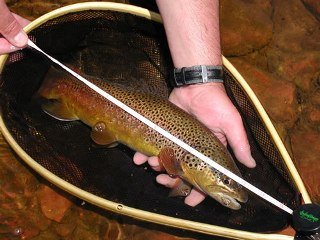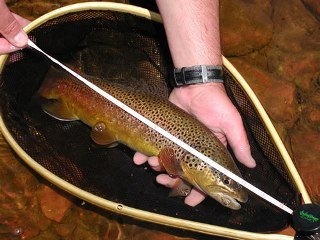 I am a catch-and-release fisherman. In fact, unless I’m on a charter trip or pulling in bluegill for a fish fry, I will always throw my fish back into the water. This is because, while I am a fisherman, I am also a lover of the environment and I believe that, in order for outdoorsmen to continue to enjoy nature for years to come, we all must adhere to the fishing regulations observed by each state. These laws are put in place, after many hours of research and data observation, to ensure the conservation of a given ecosystem, as well as the species that inhabit it.
I am a catch-and-release fisherman. In fact, unless I’m on a charter trip or pulling in bluegill for a fish fry, I will always throw my fish back into the water. This is because, while I am a fisherman, I am also a lover of the environment and I believe that, in order for outdoorsmen to continue to enjoy nature for years to come, we all must adhere to the fishing regulations observed by each state. These laws are put in place, after many hours of research and data observation, to ensure the conservation of a given ecosystem, as well as the species that inhabit it.
If you’re a fisherman, then you’re undoubtedly familiar with your area’s regulations. Size limits on each species, start and end dates for a particular season, and the amount of keepers you can take home at the end of the day are examples of such regulations.
Size limits are in order for many species to help ensure that the spawning fish for that species remain unharmed and are allowed to spawn. Seasons that fall within certain dates also accomplish this task by prohibiting fishermen from catching certain species during delicate spawning periods, and also by ensuring that a certain area isn’t too heavily fished year-round. Limits on the amount of fish you can take home with you are in place to ensure that too many fish aren’t taken from a given fishery. This is great way to ensure that the species isn’t depleted before it can effectively spawn each year, and is crucial in heavily fished locations.
Some states enforce other restrictions in an effort to achieve the same conservation goals. For instance, in some states, there are limits on how many rods each angler can have in their possession on the boat, as well as how many lines can be in the water at one time. Other states place strict restrictions on the harvesting of non-fish species, such as crustaceans. In Florida, for example, spiny lobsters are a popular species for fishermen. However, the state’s DNR closely monitors the daily limits and sizes of each boat’s haul for the day. Refusing to follow these rules, no matter what state you live in, can result in large fines and the confiscation of gear.
At the end of the day, no matter how much anyone gripes about having to throw a 13-inch largemouth bass back into the water, or only being able to keep one bull redfish per person, these regulations are in place to ensure that fish species continue to thrive, unthreatened. If we want to be able to enjoy the outdoors and fishing for many years, then we must all make an effort to respect nature and our collective love for it, and follow these very simple rules.








